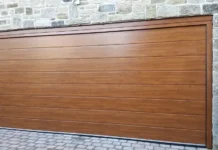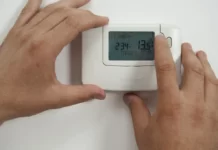People tend to take for granted that all household appliances and systems should work as expected. When they do, you know you need not worry about them. But when they start showing signs of trouble, you can only hope it is not too late to avoid the need for a full replacement.
When it comes to your HVAC equipment, you know this is something quite important to keep you and your loved ones comfortable year-round, and you also know that this is an expensive piece of equipment that you want to do everything possible not to have to replace. That is why it pays off to know when to call an HVAC technician to keep repairs easy to fix and avoid spending more than necessary. Here are some points to be on the lookout for when it comes to your HVAC equipment.
Some Things to Do Before Calling Your HVAC Technician
Before rushing to call your St Paul heating and cooling technician, check the breaker to confirm that it has not been tripped. Also, check the batteries in your thermostat to see if they are in good condition, replace the filter if you haven’t done so in a while, and make sure that nobody has accidentally hit the emergency shut-off switch that will make it impossible for the system to work. Ask your HVAC technicians for help with these routine checks or call them when you can identify any of the above problems. The more closely you watch how your HVAC system works on a daily basis, the easier it will be to identify the start of a problem. Calling your HVAC technician when an issue just presented itself may prevent you from needing to replace the unit before its time.
Follow your Manufacturer’s Recommendations
If you still have the owner’s manual that came with the equipment, you can quickly verify how often they recommend you have the unit serviced. You will likely find a section devoted to the importance of performing routine maintenance on your HVAC equipment. Much more so when the equipment is still under warranty. Don’t take any chances of voiding the warranty by not calling the professionals to come and inspect the unit at least twice a year, generally before the change of hot and cold seasons. This way, both your heating and cooling system can be carefully inspected and any issues detected before they grow into full-blown problems.
Replace Components Proactively
Have your technician check out the unit’s components during the maintenance visit. Small pieces like ignitors can easily be swapped out to keep the unit running smoothly year-round. Your unit will thank you by giving you years of service, and the equipment will be much safer to operate.
Other Reasons for Scheduling a Visit from Your HVAC Technician
Besides routine maintenance, you may spot issues that may require a call to your HVAC technician. Among them:
When There Are Fluctuations in your Energy Bills
If you notice a drastic and unexpected variation in your energy bill, look at your HVAC unit. Even newer energy-efficient systems may have a heat pump that is not operating as it should. Smaller increases in electrical consumption may be due to their decrease in efficiency as time goes by.
When Your Thermostat is Unresponsive
When you set your thermostat to the temperature you prefer and notice that the temperature in your house does not match that number, it may be time to call an HVAC technician. In other cases, a newer thermostat may allow you to receive an alert when something is not working as it should. Read the message and call the technician when required.
For Unusual Noises
It is common for people to be familiar with the way their HVAC equipment usually sounds. When you notice it produces strange sounds, pay attention, they may signal a problem. A humming noise may be a sign that there is a loose part. A rattling sound may be letting you know that the equipment has started deteriorating, or you may hear it simply because leaves or twigs have clogged your system. A chattering sound may be coming from the electrical contractor or a loose fan. If changing the filter or cleaning the condenser coils does not quiet the unit, call your HVAC technician.
A high-pitched noise may be related to a refrigerant leak. If you hear it, turn off the unit and call your technician right away. Finally, a whirring noise could signal mechanical issues in the outdoor unit or the indoor blower. As you can see, many different noises may come out of your unit and signal a problem. It is important to identify what type of noise it is so that you are able to report it correctly to your technician.













